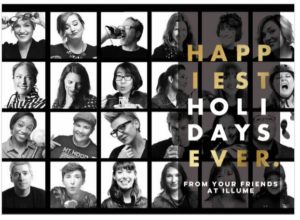My life as a researcher began as an act of love and advocacy.
I grew up in a mid-sized town in Michigan’s rustbelt. The former site of all major cereal manufacturing plants, Battle Creek, Michigan’s fortune swelled and deflated with changing economic polices, trade agreements, and international bids to house the town’s iconic plants.
By the time I was old enough to know anything, Battle Creek was attempting to recover from the deindustrialization of the early 80’s and actively fighting back a crack cocaine epidemic that was rapidly transforming communities and gobbling up youth who had few to no opportunities for employment in the town.
As the child of a social worker and the executive director of a community development non-profit, I would ride around the city with my dad as he identified sites for rebuilding. I would go with him when he oversaw crews rebuilding dilapidated homes for tenants. I would go with him to city commission meetings, watch the local political process unfold, and hear the passionate arguments of community members trying to reclaim their city.
I would help where I could. Mostly, I observed.
Later, the North American Free Trade Agreement was signed and local jobs trickled away as rumors, uncertainty, and fear moved through the town. Crime seemed to only increase and high school dropout rates were skyrocketing. Friends I went to grammar school with were killed in drug-related violence. Our parents were losing their jobs as they slowly moved to Mexico, later China.
I was off to college.
I left my town, as a friend put it, spending much of my time looking back. I had to make sense of the poverty, the violence, the changing fabric of our neighborhoods. Rather than taking the advocacy route of my father, I threw myself into social theory.
Asking questions is an act of compassion.
Answering questions is a labor of love, a rigorous, empirical pursuit.
I felt a deep desire and urgency to examine formal and informal markets in southern Michigan. I needed to understand the disproportionate impacts of economic changes on public health, on our collective well-being. I spent hours building empirical bridges across the gap between my life as a college student and my old friends in Battle Creek.
I chose research because it brings me closer to understanding my own life and the lives of others. Research brings me closer to what it means to be human, and it is the tool I use to unpack challenging problems into millions of complex parts. I examine those parts, I turn them over, I explain them with numbers, I explain them with the words of the people I want to represent. They inspire me to speak, to tell stories, and to carefully, thoughtfully, and empathetically represent the lives of others.
Illume is devoted to inquiry that improves lives and represents the experiences of the people we serve. While climate change and energy resource management may seem like a far cry from issues of disinvestment, both take on complex social and empirical questions. Both work to arrive at solutions that better all of our lives, no matter who we are or where on this earth we reside.






